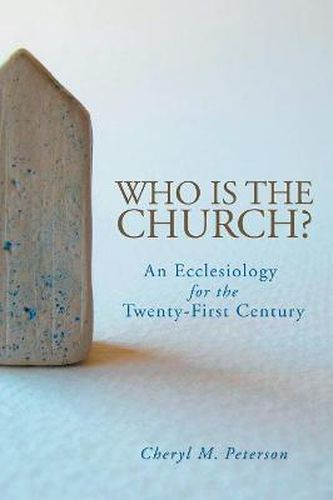Readings Newsletter
Become a Readings Member to make your shopping experience even easier.
Sign in or sign up for free!
You’re not far away from qualifying for FREE standard shipping within Australia
You’ve qualified for FREE standard shipping within Australia
The cart is loading…






Many congregations today are beset by fears, whether over loss of members and money, or of irrelevancy in an increasingly pluralistic society. To counter this, many congregations focus on strategy and purposewhat churches do but Cheryl Peterson submits that mainline churches need to focus instead on what or who they areto reclaim a theological, rather than sociological, understanding of themselves.
To do this, she places the questions of the church’s identity and mission into a conversation with the primary ecclesiological paradigms of the past century: the neo-Reformation concept of the church as a word event and the ecumenical paradigms of the church as communion. She argues that these two paradigms assume a context of cultural Christendom that no longer existsfocused on the church that is gatheredrather than the missional church that is sent out.
Peterson suggests instead that we understand the church as a people created by the Spirit to be a community, and that we must claim a narrative method to explore the church’s identityspecifically, the story of the church’s origin in the Acts of the Apostles. Finally, here is a way of thinking of church that reconciles the best of competing models of church for the future of mainline Protestant theology.
$9.00 standard shipping within Australia
FREE standard shipping within Australia for orders over $100.00
Express & International shipping calculated at checkout
Many congregations today are beset by fears, whether over loss of members and money, or of irrelevancy in an increasingly pluralistic society. To counter this, many congregations focus on strategy and purposewhat churches do but Cheryl Peterson submits that mainline churches need to focus instead on what or who they areto reclaim a theological, rather than sociological, understanding of themselves.
To do this, she places the questions of the church’s identity and mission into a conversation with the primary ecclesiological paradigms of the past century: the neo-Reformation concept of the church as a word event and the ecumenical paradigms of the church as communion. She argues that these two paradigms assume a context of cultural Christendom that no longer existsfocused on the church that is gatheredrather than the missional church that is sent out.
Peterson suggests instead that we understand the church as a people created by the Spirit to be a community, and that we must claim a narrative method to explore the church’s identityspecifically, the story of the church’s origin in the Acts of the Apostles. Finally, here is a way of thinking of church that reconciles the best of competing models of church for the future of mainline Protestant theology.